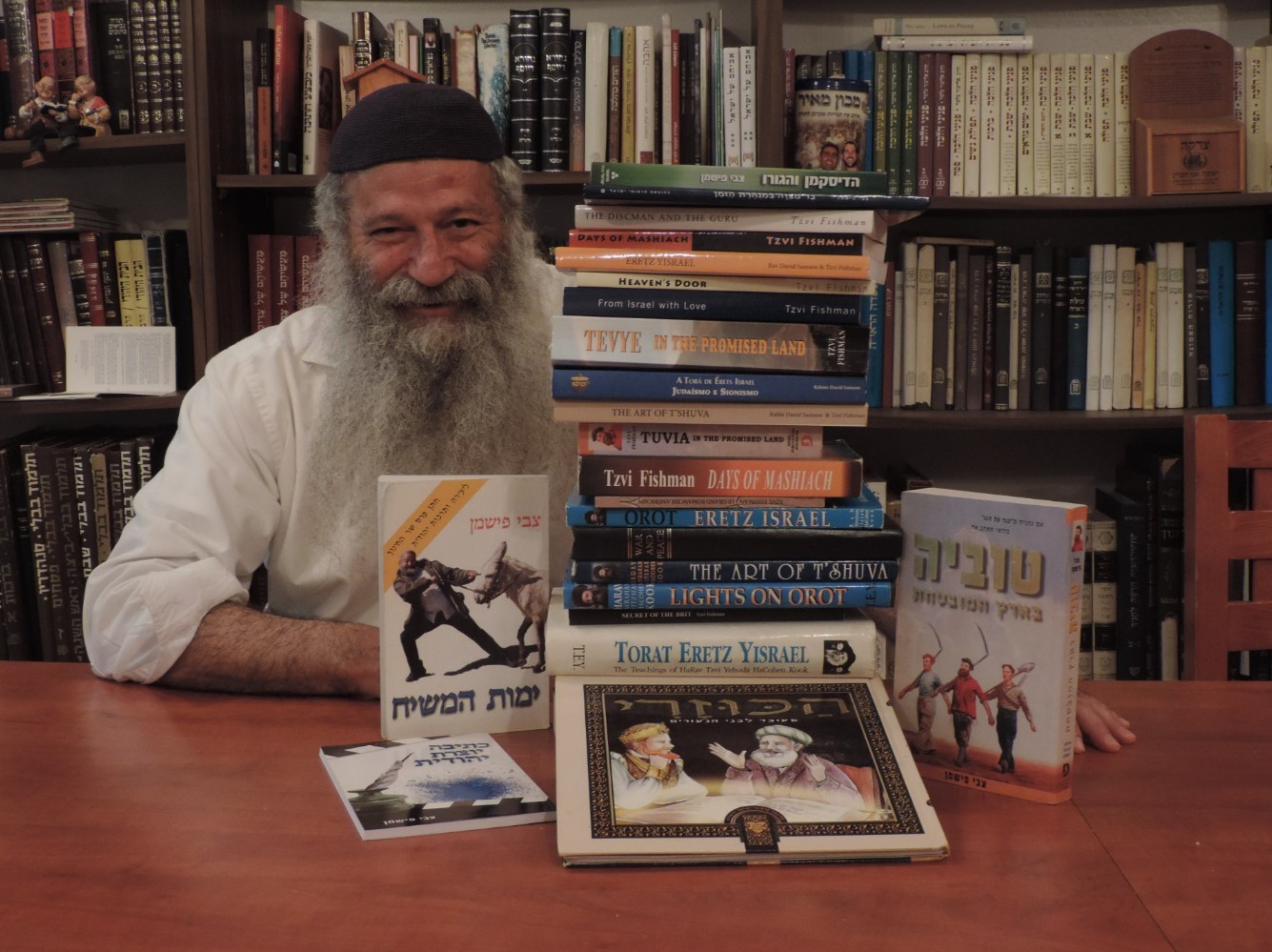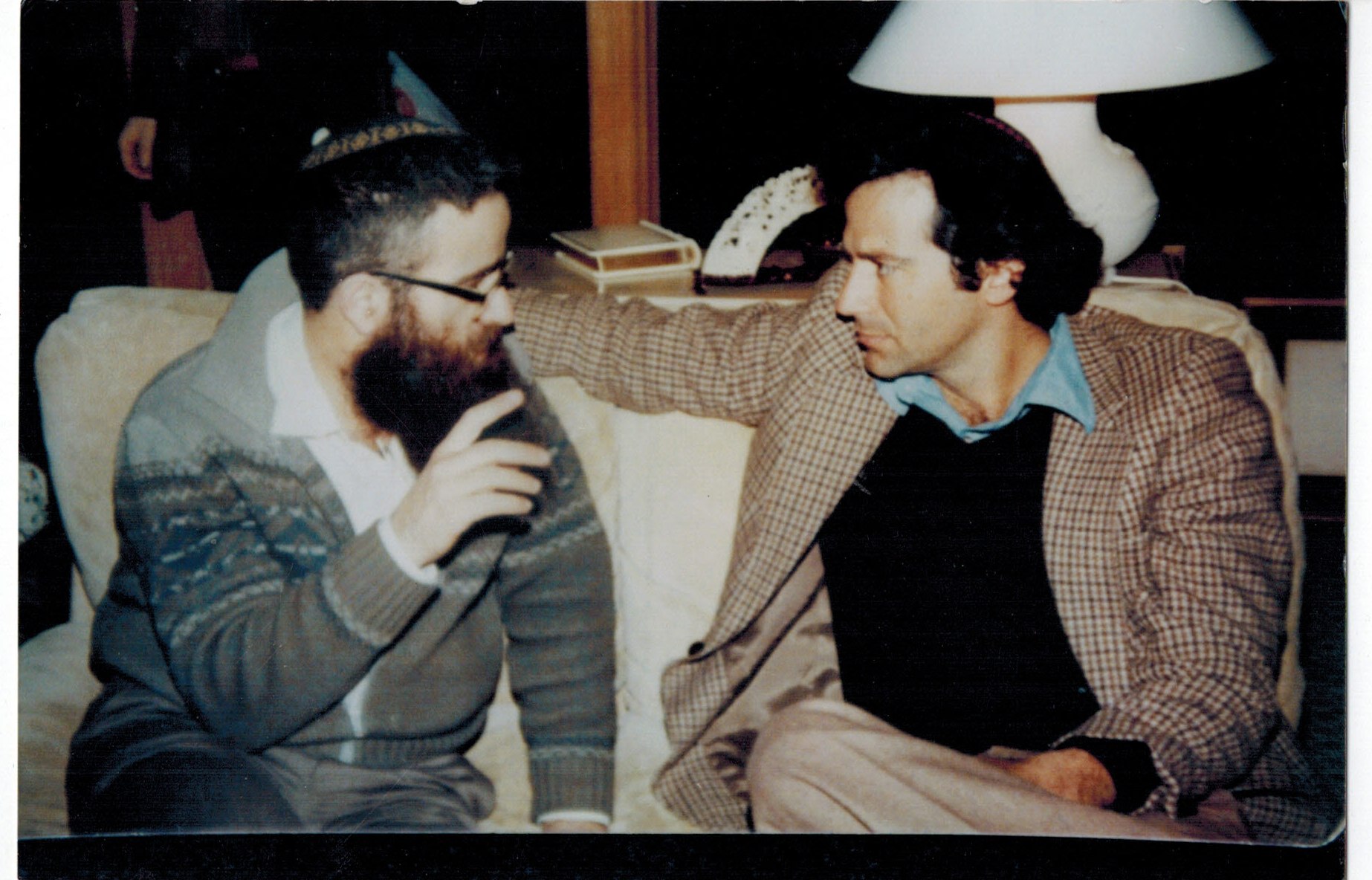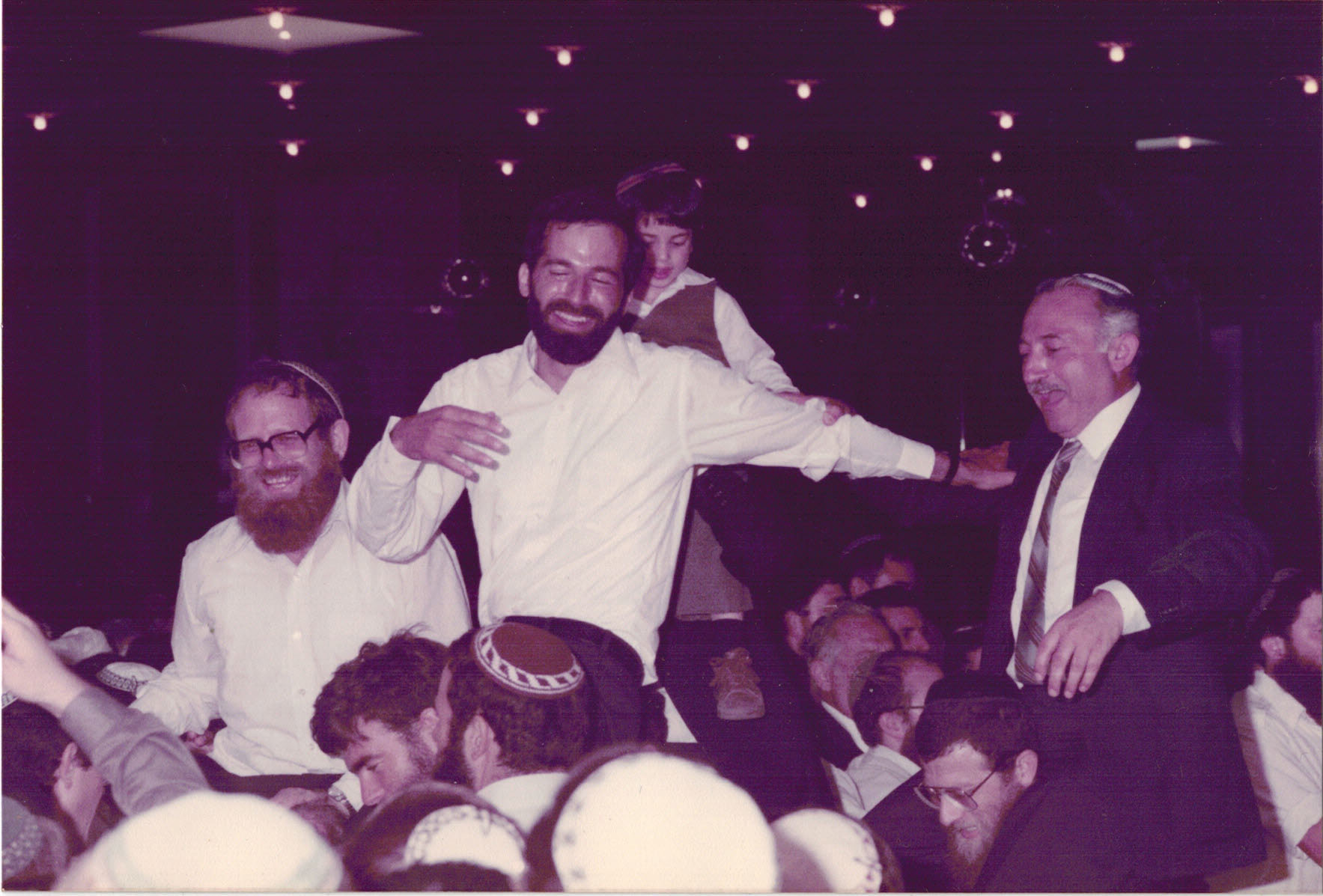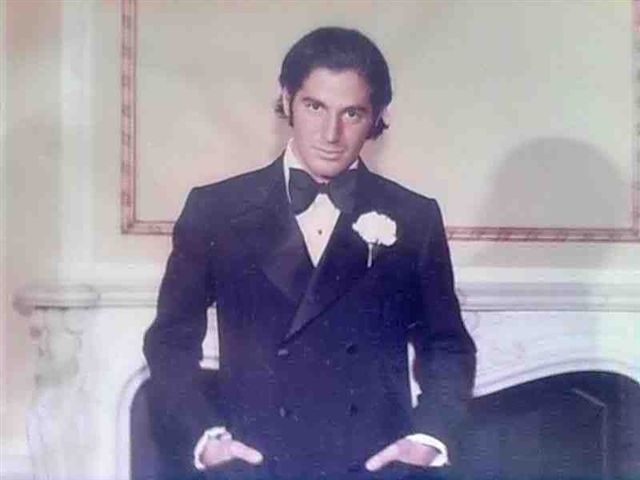The Hollywood Director: "Suddenly I Realized – There is Hashem in Heaven, and I Didn't Know"
Tzvi Fishman grew up with almost no Jewish identity, reached the pinnacle of Hollywood, but at the height of his career, he discovered he was very ill. How did the news of his illness lead him to search for the truth? And what did he see in a dream that precisely matched what he later discovered in the Land of Israel? All the answers in a fascinating and transformative human story.
 Tzvi Fishman
Tzvi FishmanWhen you look at the face of director Tzvi Fishman, and gaze at the pictures he shares, where he appears as a young man, one is struck with disbelief. It's difficult, very difficult to recognize him in those photos, and not just because of the many years that have passed since. His entire essence seems different. You cannot see in the young and muscular boy, who looks outwardly very secular, the Tzvi Fishman who today stands with dignity and long sidelocks.
"I really looked like a non-Jew back then," Tzvi seems to read our minds, thus opening his story: "I was born in America, into a Jewish family that was connected to the Reform movement. We lit Chanukah candles but also received Christmas presents and had a Christmas tree; on Passover, we ate matzot, but I am not sure if they were kosher, and we certainly observed Christian holiday customs. My parents wanted us to grow up like all the non-Jewish neighbors in our area, and essentially all the Jews who lived around us were like us. I grew up with the knowledge that I am Jewish on one side, but on the other side, my identity was American."

However, Tzvi notes that as time went on, he began to develop antibodies against Judaism. "I really loved sports and wanted to participate in the groups that were held in the afternoon, but they didn't accept me because my parents forced me to attend a Jewish afternoon school. I tried to convince them that learning about Judaism was unnecessary, but they insisted."
Another point he mentions: "I remember that our rabbi, who of course was not a real rabbi, told us about the Exodus from Egypt, and he described the splitting of the Red Sea like this: the Jews walked on the sand, and suddenly a torrential rain started. The rain came down just as the Egyptians entered the sea, so they drowned, while the Jews managed to exit the sea before the rain. He made us feel like it had nothing to do with Hashem. From the very beginning, his words seemed like nonsense to me. I wasn't interested in listening to these fairy tales.
"And indeed," Tzvi continues, "after my Bar Mitzvah, which took place in a church because we didn't have a suitable synagogue, I came to the decision to leave Judaism for good and just didn't want to hear about it anymore."
Tzvi Fishman in his captivating life story:
The Path to Hollywood
Young Tzvi grew up and when he pursued higher education, he decided to specialize at New York University and chose film studies. "I was a very intelligent guy," he attests to himself, "and I invested a lot in my studies. One of the films I produced managed to make its way into Hollywood and became very popular. I saw myself as a writer too and wrote a book I thought had the potential to become a bestseller. I sold the rights to a publishing house, but for some reason, the book wasn't seen in stores. I was very hurt by this, but when I spoke with the company's vice president, he told me: 'I read the book and it's excellent, the problem is with your name', and for the first time in my life, I understood—my Jewish name was a hindrance. It was a reminder because I had almost forgotten I was Jewish.

"I also remember that after my first film, the producer asked me: And what will your next script be about? I told him I was planning a movie about the Holocaust, and he burst out: 'I will never make a film where the hero is Jewish'. This was also a slap in the face for me. "Looking back," says Tzvi, "I realize that Hashem sent me reminders to awaken me to my essence, to my Judaism."
Meanwhile, Tzvi continued to develop professionally. "I lived in Hollywood, the city of movies. I succeeded in selling scripts I wrote and being responsible for many productions and films released. I lacked nothing financially, bought a new and beautiful car, and owned an apartment by the beach. And yet, inside I felt restless. There was a constant inner turmoil in me."
Tzvi notes that he mistakenly thought if he just managed to earn more money, or achieve higher success, he would finally be happy. "So I worked even harder, and indeed, I saw success in whatever I did, and even moved to a nicer apartment and bought a more luxurious car, but I still wasn't content."

Then, one day he discovered he was suffering from severe colitis. "I suffered from abdominal pain and bleeding that wouldn't stop. I went to doctors and they prescribed me a strong cortisone medication, and said if it works—good, if not—I would need surgery to remove part of my colon, which would make me dependent on external equipment. I was only 25 at the time and the news of the illness struck me like thunder on a clear day," he recounts. "From that moment, I began to think about alternative ways of coping, like reflexology, yoga, acupuncture, and other types of complementary medicine."
Faith by the Seaside
"On one of the days," Tzvi recounts, "I was sitting by the sea with a friend of mine, a Jewish Hollywood actor who was also intermarried, and he asked me: 'How is it that you don't know anything about Judaism?' His question touched the most sensitive place in my heart because at that time I was reading a lot of psychology and books about religions. So why was I running away from Judaism? I remembered that I once read in a psychology book that when there is something close to you that you run away from, it is likely because you are afraid to face it, and the only way to cope with it is to approach and confront it. "It was true divine providence," Tzvi is moved, "because that very day I went to a Chabad bookstore and told the seller I was looking for books about Judaism. He gave me a Bible and another book called 'Judaism for Beginners,' as well as a book on the Tanya. Meanwhile, I saw 'Likutei Etzot' by Rebbe Nachman of Breslov on the shelf and bought it too."
"I went to the beach," Tzvi continues, "I sat there, opened the books, and saw the first verse in the Bible: 'In the beginning, Hashem created the heavens and the earth.' I looked up and said to myself: 'There is Hashem in heaven, and I didn’t know.' I then continued reading about how Hashem told Abraham 'Go to your land,' meaning the Land of Israel. I read about the Egyptian enslavement and again saw that Hashem tells Moses to take the Jews to the Land of Israel. Suddenly I understood that Hashem wants us to be in the Holy Land, although it didn't connect with the fact that so many Jews live outside it, but on the other hand, I felt a connection to the Creator and understood that He has demands from us."

And Tzvi continues to share: "In the book 'Foundations of Judaism,' I read about the Tashlich mitzvah and understood that we are supposed to throw our sins into the water. It was a few days before Rosh Hashanah, so I went to the sea with my cortisone medications and threw the bottles into the sea. I said to Hashem: 'Forgive me for all the years I didn't recognize you. I ask that you accept the medications as my sins, just give me complete healing, you alone, without medications and without doctors.'"
From that day on, Tzvi says he stopped taking the medications, but the bleeding didn't stop. "I lost 15 kilos due to the bleeding, and the abdominal pain prevented me from functioning. There came a stage when the doctors told me I would need the surgery to remove part of my colon. I remember that night, after the hard conversation with the doctors, I dreamed a dream. In the dream, I saw myself entering a second-hand clothing store and noticing a door at the back. I passed through the door and found myself in a room full of holy books in Hebrew. Suddenly, I felt a pleasant peace that I hadn't felt in years, and I just wanted to stand in that room and stay there. I couldn't read the books because I didn’t know Hebrew, but the feeling was so good. Then, the shop owner came and told me he needed to close, but I asked: 'Just give me five more minutes here.' Then I noticed another door, went inside, and saw an empty room with a large box in the center containing tefillin. In the dream, I heard something like a heavenly voice telling me: 'You need to cleave to Hashem.' Then I woke up."
To the Land of Israel
A few days after the transformative dream, Tzvi decided to start taking the medications again and take care of his health, but before he could purchase them, he received a phone call from his uncle, asking him to accompany him to the hospital the next day because he needed to undergo laser eye surgery and wouldn’t be able to drive afterward.
"Of course, I agreed happily. I accompanied my uncle, and while waiting for him outside the surgery room, I noticed I was starting to pray for the first time in my life. I asked Hashem: 'Take care of my uncle, take care of my uncle.' I suddenly felt so close to the Creator. I determined in my heart that I would take action and search for the truth.
"I went back home," Tzvi continues, "and wanted to go out to buy the medicine, but then, for the first time in many months, I noticed that the bleeding and abdominal pains had simply stopped. I wasn't even surprised. I understood that Hashem had performed a miracle and healed me. When I later met doctors, they said they couldn't explain it because even if I had taken the medicine, it wouldn't have completely healed me, and seeing as I hadn't taken it—there was no chance I would have healed. I realized one thing—Hashem is in control of everything, He does everything, and He can do whatever He desires.

"That night, I went to sleep," he continues, "and it was clear to me that I couldn't continue with the same life I had before. I understood I had to do what Hashem demanded of me. Before going to sleep, I turned to the Creator of the universe and told Him: Hashem, I don't know if you want me to make aliyah to the Land of Israel or to stay here, in Hollywood, and keep the mitzvot here. Please, give me a sign."
And the sign came earlier than expected. "In the morning," Tzvi recounts, his voice trembling, "I left the apartment and went to collect the mail. I was beyond surprised to find a large brochure with a picture of the Western Wall in Jerusalem on the cover. My whole body shivered; it was such a tremor. I have never received anything from any Jewish organization, and suddenly, just hours after asking for Hashem's help—I received the brochure."
Tzvi notes that he bought a ticket to the Land of Israel that very day and boarded the plane to visit Israel. "I arrived in the Land of Israel and entered a study hall in one of the renowned yeshivas in Jerusalem. The moment I stepped in, I saw all the holy books I had noticed in the dream. It looked exactly the same, and the joy and tranquility I experienced in the dream were there, in Jerusalem too. I decided that I would stay here."
And how did your parents react?
"My parents didn't really encourage it, and it was hard for them to have me living far away. But I can tell you something amazing—for their 40th wedding anniversary, my mom asked me to come to America. After consulting with the head of the yeshiva, who told me it was honoring my father and mother, I boarded the plane and flew. Even at the New York airport, I discovered the bleeding and abdominal pain were returning... it was after several years that I hadn't experienced them at all. I then understood, in the clearest way, that Hashem wants me to be in the Land of Israel because that's where my place and home are."
Back to the World of Film
Tzvi returned to the Land of Israel, continuing his studies in yeshiva. One day, the rabbis from the yeshiva suggested he meet an Israeli girl. The match developed and, before long, they were married and started their home, while Tzvi continued to devote his entire schedule to learning.
One day, Tzvi received a surprising phone call. Representatives from an Israeli organization involved in film production heard about his productions abroad, and they wanted him to direct films inspired by Jewish values, aimed at yeshivas and various organizations. "That's how I found myself returning to the world of directing and production," says Tzvi.

Were you happy about it?
"Truthfully, it wasn't easy," he admits, "I remembered the tense and nervous life in Hollywood. I didn't have joy back then, but now I feel so good. But I consulted with my rabbi, and he quoted what is written about the children of Israel leaving Egypt with great wealth. He told me: 'Your wealth is your professional training, and you need to pass it on.'"
And so, Tzvi was involved in producing films for various uses, and two years ago, he also served as the director of a unique film called 'Stories about Rabbi Nachman.' "This is a ninety-minute film starring actor Yehuda Barkan. The film is very gripping, and it's also full of depth and fear of Heaven. It was very important to us," he shares.
Fishman would be delighted to produce more films in this style, but as he notes: "Currently, there is no money, and I haven’t yet found someone willing to finance such films. Although the Israeli government allocates quite a budget to film funds, these funds are mainly controlled by left-wing individuals, and there's no chance they would allocate these funds to religious films."
However, he does not give up. "I very much hope that the day will come when I will be able to continue working in the field," he says optimistically, and in the meantime, he continues to delve into his studies and enjoy every moment.

